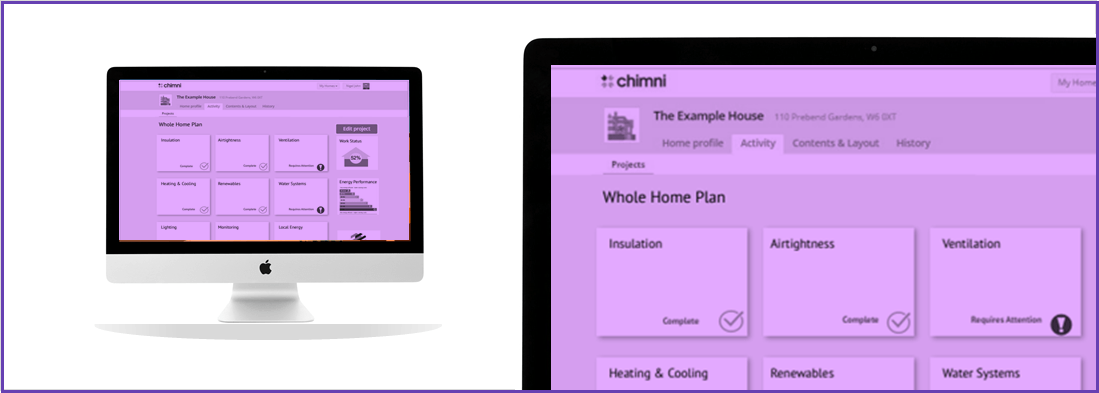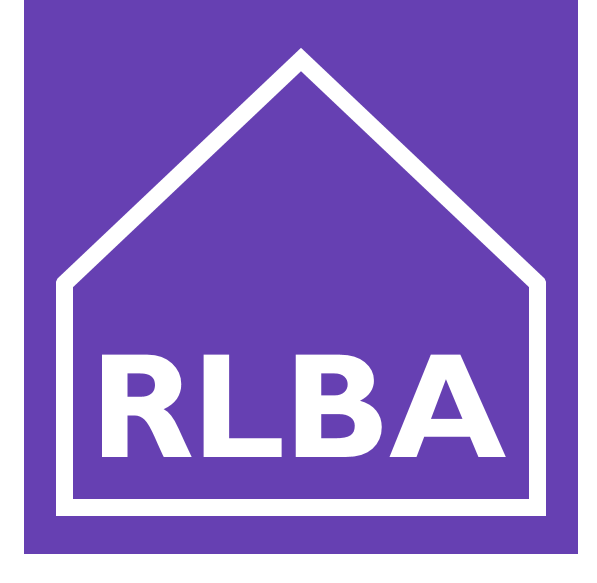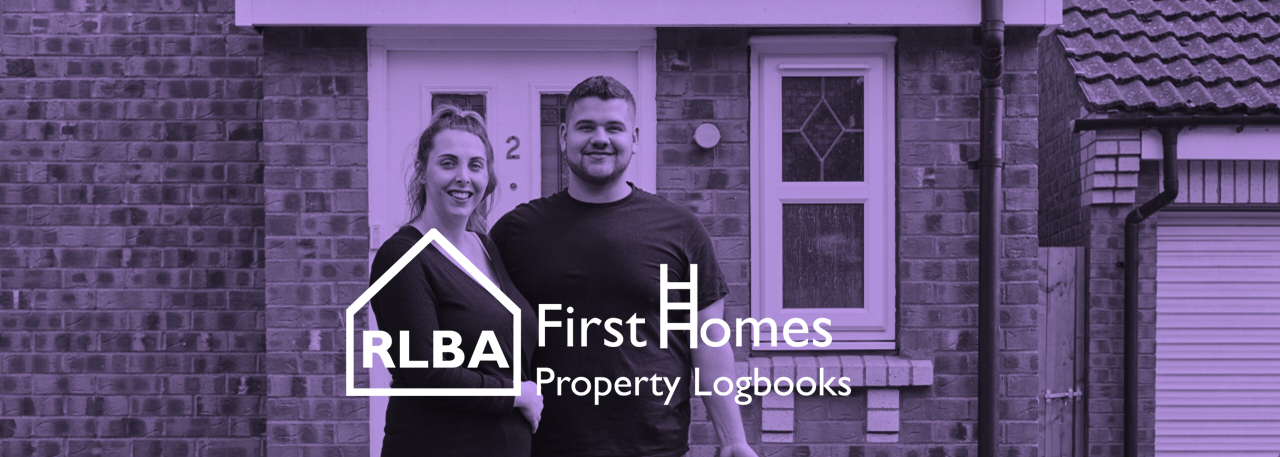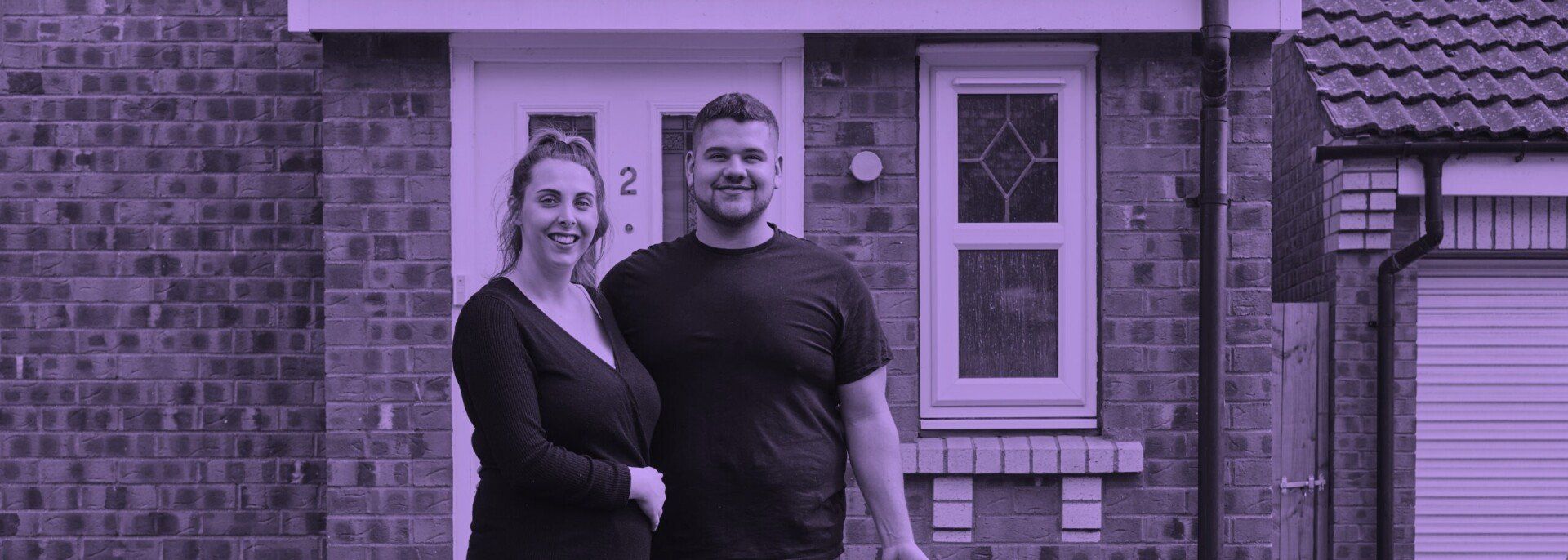Delivering Retrofit Plans With Property Logbooks
Nigel Walley - MD of Chimni • October 2, 2021
How Property Logbooks will deliver Building Retrofit Plans (BRPs) for UK homeowners.

Retrofit Plans Being Trialled Within RLBA Member Logbooks
1st October 2021 - This blog has been written to coincide with the launch of the Green Finance Institute's new White Paper on Building Renovation Plans, which publishes a new data structure developed with support of a wide group of industry players including the RLBA and its member companies.
Introduction
The drive to NetZero in housing and the need for Retrofit Planning have arrived at a time when the Government has been investigating different areas where open, shareable residential property information could drive change. The Grenfell tragedy drove a call for better construction & materials information to be made available for all residential buildings - what Dame Hackitt called a ‘Golden Thread’ of property data.
The resulting Building Safety Bill also mandates that safety information be open and shared. This has led to call for digitally hosted Safety Plans, available online to all stakeholders in a residential building. The 'Golden Thread Working Group have encouraged use of 'common data environments to ensure there is controlled access to a single source of truth'.
DLUCH are looking to build on the Golden Thread idea and find ways for all new homes to come with a digitally-hosted 'Materials Record' and a plan for materials re-use that will bring housing into the ‘circular economy’. Local councils are investigating new mechanisms for sharing planning and property data digitally.
The Lettings industry has called for all property on the rental market to publish a 'Lettings MOT' with all key certificates, permissions and insurances available digitally to all stakeholders. At the same time, the problems in conveyancing have led to the DLUCH to call for all homes being sold being able to publish online records of all property data, including building work with the relevant permissions and certification held in open digital format.
Research has shown that homeowners don't want multiple, overlapping apps and services to cover all these functions. The job that the RLBA has been asked to do is to bring these strands together into a single, comprehensive solution to residential property data that puts the homeowner in control.
Retrofit brings a new dimension to this challenge.
The Role of Logbooks In Delivering BRPs
Up till now, RLBA member companies have focussed on creating records of past activity - transactions, building work, materials and maintenance records. The RLBA has worked with industry bodies on data standards in each of these areas and an RLBA registered Logbooks can display these data sets in a consistent, standardised way.
Retrofit brings a view forward as well as back. As we know, our homes are responsible for 14% of carbon emissions (CCC 2019) and all homeowners have been challenged with bringing up to new NetZero standards. For most of us that means planning for a series of future works to be undertaken on our homes over the next decades up to 2050.
Property Logbook owners this means adding a set of future project plans to their record of past ones. So a Renovation Plan is a 'plan of works' with intelligence and integrations built in. It is likely that these Plans will differ widely depending on the housing and ownership types. For social and managed housing a 'Whole Home Plan' (PAS2035) approach will be possible. But for the majority of owners, the Retrofit process will be self-funded and these homeowners need the information and tools to self-manage the process. Property Logbooks can deliver plans to these homeowners in manner consistent with they way they already manage their homes.
Whichever Retrofit approach is used, at the core of each type of plan has to be consistency in approach and data captured. The industry has needed a standard data approach to this challenge, and the Green Finance Institute’s work and the new White Paper has delivered that solution.
There is a direct link between the data in a Renovation Plan and the rest of a the data in a Property Logbook. Logbooks already contain EPC information, historic project records and links to certification bodies. As each component of a Renovation Plan is completed, the data will becomes a historic project record along side all the other project records in the Logbook.
An Integrated Approach
Connectivity and integrations with certification bodies and other service providers will also be key for Renovation Plans. RLBA registered logbooks already integrate with certification bodies and registers (like the EPC Register and HMLR). Logbook companies will need to integrate and share data with companies running stand-alone Retrofit services. Those companies in turn will need to be able to lodge data in a home's logbook.
For Retrofit finance to work these integrations will also need to extend to finance companies to allow green loans to be measured and monitored. The RLBA is working with banks and building societies to establish a standard basis for this reporting to happen with trials expected to start at the beginning of 2022.
It is also likely that many homes will be sold in the next few years with this Retrofit journey only partially completed. This means that progress will need to be assessed as part of the conveyancing process and project / green finance information will need to be passed between owners on sale. It is therefore crucial that the information in Renovation Plans is co-ordinated with the other digitally-hosted data being collated by homeowners considering selling their home. This data needs to be integrated with the conveyancing and mortgage industries. RLBA registered logbook already deliver these integrations.
For RLBA members to be able to create a standardised way of delivering this within Logbooks, we required an industry agreed data standard for Retrofit Plans. This is why the Green Finance Institutes work in this area has been so crucial to service providers looking to support change. The publication of the new White Paper on Renovation Plan data is a seminal moment. The first Renovation Plans based on the new data schema agreed during this recent project will be launched within RLBA Logbooks before the end of the year.
Next Steps
The next challenge will be agreeing how this data can be exchanged and shared between the various systems and services being developed by the Retrofit community. We recognise that there will be Retrofit Assessors and Coordinators building stand alone software and web apps using this new data standard. It is crucial that these systems can share data with homeowners in a variety of ways, including app integration and data sharing with Property Logbooks.
We look forward to working with the other industry players to agree data and API schemas necessary for this integration and data sharing to take place.
Nigel Walley - MD Chimni - Oct 2021.

A Review Of RLBA Activity Around Data Exchange and Reporting October 2021 The RLBA and its' member companies are working across a number of functions and government departments to look at how Property Logbooks can support Government home buying, housing and energy policy. We have pilot projects in Home Buying & Selling, Local Government, Retrofit and Modern Methods of Construction (MMC). In each of these areas, a core emphasis of the Logbook work to date has been building on their ability to aggregate documents and data from a wide variety of source to create a single source of truth. This is still a crucial function, but we anticipate, as logbooks and data sources evolve, there will be less emphasis on 'documents' and more emphasis on live links to data sources through integrations. The RLBA is working on standardised industry mechanisms for connecting Logbooks to property registration and Certification Bodies, Local government and Industry organisations. The initial focus is gathering data. But this ‘connectivity’ brings opportunities to do other interesting things. Increasingly we are being asked what Logbooks can deliver back up these connections. There is an emerging theme across all strands of our work which we haven’t picked out and reflected on – the ability of a property logbook to deliver monitoring and reporting of specific activity where national and local government goals and targets are involved. For the professional and industry bodies, the answer is simple. Logbooks can deliver the data required to support a wide range of functions. For Home Buying & Selling (HBS) Logbooks are being configured to deliver data for the BASPI form, and even complete ‘Property Packs’ configured to the agreed ‘Contract Ready’ standard agreed by the HBSG’s Upfront Data workgroup. For Local Authorities Logbooks can deliver standardised Building Control and Planning applications, and the information needed to support them. We are also working with councils to investigate how, using systems developed for Open Banking, we can enable Property Logbooks to have ‘privileged links’ giving homeowners secure access to Council records for things like the Electoral Register, Council Tax But beyond these connections, there are an increasing number of trials being planned where Logbooks will provide reporting and accountability BACK to the connecting bodies. Examples of this include: A project with a group of Local Authorities to look at how logbooks can be connected to council systems to exchange data and receive services from councils. Councils are under pressure from government to be able to report on a range of issues including the NetZero status of homes in their areas, and the progress against Retrofit goals. Our trial is looking at how Property Logbooks (with permission from owners) can offer a data feed that reports status of projects and certification in these areas. In the long term this will be a direct data feed between Logbook and Council, but in the short term (given the limitations of current council services) the RLBA is building a council dashboard to deliver reports aggregated from Logbooks connected to the RLBA Hub. A second area, also linked to the Retrofit debate, is in the role of Property Logbooks in delivering Retrofit Plans (See previous blog here ). Working with the Green Finance Institute 'Retrofit Framework', we have built a model to host Retrofit Plans within Property Logbooks and have them report (again, with homeowner permissions) on the status of the Retrofit works within the plan and the EPC rating achieved. Reporting on progress at individual property level, and aggregated level can deliver huge insight Building on the Retrofit activity, we are working with a group of banks and building societies, to establish a reporting basis for Mortgages and Green Loans. The challenge these finance houses face is that they are being asked to report on the green status of their loan books but have no mechanism to do it. Our projects are looking to give every homeowner taking a green loan a property logbook, with the ability to report project status and the EPC status resulting from the work. Once again, our projects are based on Logbooks initially reporting to a dashboard on the RLBA Hub, before aggregated reports are sent to the finance houses. Our aim is to make the case that all mortgages given with Government assistance should bring with them an obligation to report on retrofit/green energy issues. A Logbook given out with each mortgage can deliver that reporting. The long term vision is of a national ‘digital twin’ with every home in possession of a node on a national property data network through which they exchange data and services with local and national government, certification bodies and finance groups. Our projects are the initial steps towards this goal, and we aim for logbooks to be at the core of meeting the monitoring and reporting needs of the new greener housing market.

Chimni is a property logbook company that provides a digital companion for the complete lifecycle of buying, developing, enjoying then selling a home. Chimni has a direct to consumer service in which homeowners can set up a logbook and 'get their ducks in a row' before they even consider selling. Click our introduction video below to get an overview of the Chimni service from the perspective of your customers:

We work with over 200 private residential, build to rent and commercial developers, managing agents and housing associations. Spaciable – our award-winning portal – digitalises their sales, handover and aftercare processes. By making these processes more efficient and automating numerous time-consuming tasks, Spaciable saves our clients time and money. Admins and home users each have access to bespoke dashboards in the developer’s branding. Admins can use their dashboard to create events and invite residents, using the calendar feature, as well as upload important documents and communicate with home users on a development, phase or individual plot basis. Home users have access to a wide range of plot specific information, such as their fixtures and finishes, a library of documents relating to their home, including appliance manuals and our expertly written home user manuals, key contact details, FAQs, an area guide, a defect reporting tool, a home designer suite, and access to exclusive deals and offers. By pre-empting common issues faced by home users and giving them the tools to self-serve solutions, customer care calls are reduced, costly call-outs drop and customer satisfaction skyrockets. Spaciable is an omnipresent reminder of the elite customer experience your brand provides. We are the market leader with a digital delivery of over 100,000 plots for a number of reasons – one of which is our ability to evolve and adapt. With Spaciable, our clients benefit from continued development and additions. This has recently included two game changing new features: My Journey and Spaciable Legal. My Journey is a digital handholding tool that guides home users through the entire homebuying journey, from sale through to legal completion and beyond, thereby getting sales across the line in less time and improving cashflow. By breaking the journey up into easy-to-follow steps with instructions for what needs to be done, home users feel supported throughout the process, without time consuming input from sales teams. This ensures key tasks don’t get missed, causing costly delays to legal completion and frustration for all parties. Spaciable Legal is already revolutionising the way homes are sold, with completion times reducing by 48% and with 67% fewer fall-throughs. The incredible feature takes the conveyancing process online, using groundbreaking technology to provide instant quotes from solicitors, automating tasks, such as local searches, and facilitating all aspects of the process, from submitting queries and anti-money laundering checks to exchanging contracts and making payments. By providing all of this through a single platform used by sales teams, solicitors and home users, the process becomes more transparent, minimising buyer frustration and the need to chase for updates. What’s more, Spaciable Legal is a free add-on and can even earn developers commission from referral fees. This itself can offset the cost of Spaciable!





